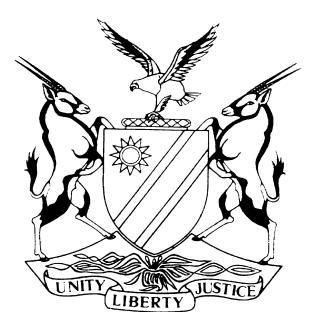REPUBLIC OF NAMIBIA

IN THE HIGH COURT OF NAMIBIA NORTHERN LOCAL DIVISION, OSHAKATI
REVIEW JUDGMENT
Case Title: The State v Mbambangida Shipena | Case number: CR 36/2023 | |
Division of Court: Northern Local Division | ||
Heard before: Honourable Lady Justice Salionga J et Honourable Mr Justice Kesslau J | Delivered on: 11 October 2023 | |
Neutral citation: S v Shipena (CR 36/2023) [2023] NAHCNLD 105 (11 October 2023) | ||
It is hereby ordered that:
| ||
Reasons for the order: | ||
KESSLAU J (SALIONGA J concurring) [1] The accused was charged in the Magistrate’s court of Okongo on four counts of housebreaking with intent to steal and theft. [2] He pleaded guilty and the court invoked the provisions of s 112 (1) (b) of the Criminal Procedure Act 51 of 1977, as amended (the CPA). He was convicted as charged and sentenced to two years direct imprisonment on each count. [3] Realising that the intention of the accused to steal was not covered during the Magistrate’s questioning, a query was directed in that regard. [4] The magistrate responded as follows: ‘The Magistrate is of the opinion that when it asked the question “After you broke into the Cuca shop what happened? and accused replied “I entered inside and took the money” and further question of “Did you have the intention to remove these items from the Cuca shop to without the permission of the complainant and the accused answers being “Yes”. Established his intention at the time of breaking…..Which is to take money from the Cuca shop to buy his food as he indicated in his plea explanation.’ [5] It is trite law that questioning in terms of Section 112 (1) (b) of the CPA has a twofold purpose, namely, to establish the factual basis for the plea of guilty and to establish the legal basis for such plea. From the admissions, the court must conclude whether the legal requirements for the commission of the offence have been met. These include questions of unlawfulness, actus reus and mens rea. The court can only satisfy itself if all the admissions adequately cover all the elements of the offence. [6] When faced with a similar scenario in S v Kaninab,1 Justice Liebenberg stated as follows: ‘In the present case, the accused was charged with the offence of housebreaking with intent to steal and theft. The state alleges that the accused’s intention when he entered the house was to steal. In this regard intent is an essential element of the offence which was not covered by the magistrate’s questioning. The questions posed by the learned magistrate as to why he pleaded guilty and what he did inside the house cannot be accepted as a question attempting to establish the intention of the accused at the time of entering the house. The court could not have satisfied itself that the accused admits all the elements of the offence, if the questions posed to him did not cover all the elements of the offence particularly the element of intention.’ [7] Likewise in this matter of housebreaking with intent to steal and theft, the element of intent just like other elements of the offence is essential and ought to be met before conviction. The intention of the accused to steal prior or whilst breaking into the properties was not clearly covered by the questioning in this matter. The questioning by the Magistrate points out the intention of the accused while already inside the Cuca-shop pertaining to the second part of the offense being theft. [8] In the result the following order is made. 1. The convictions and the sentences in respect of counts 1, 2, 3 and 4 are set aside. 2. In terms of s 312 of the Criminal Procedure Act 51 of 1977 as amended, the matter is remitted to the magistrate in order for her to question the accused in terms of s 112(1)(b) pertaining to his intention prior to committing the offences of housebreaking. 3. The period already spent in custody should be considered if the accused is convicted and sentenced afresh. | ||
Judge(s) signature | Comments: | |
KESSLAU J: | None | |
SALIONGA J: | None | |
1 S v Kaninab (CR 75/2016) [2016] NAHCMD 356 (11 November 2016).
Documents citing this one 2
Judgment 2
| 1. | S v Benjamin (CR 42/2023) [2023] NAHCNLD 121 (9 November 2023) | |
| 2. | S v Uirab (CR 121/2023) [2023] NAHCMD 730 (13 November 2023) |